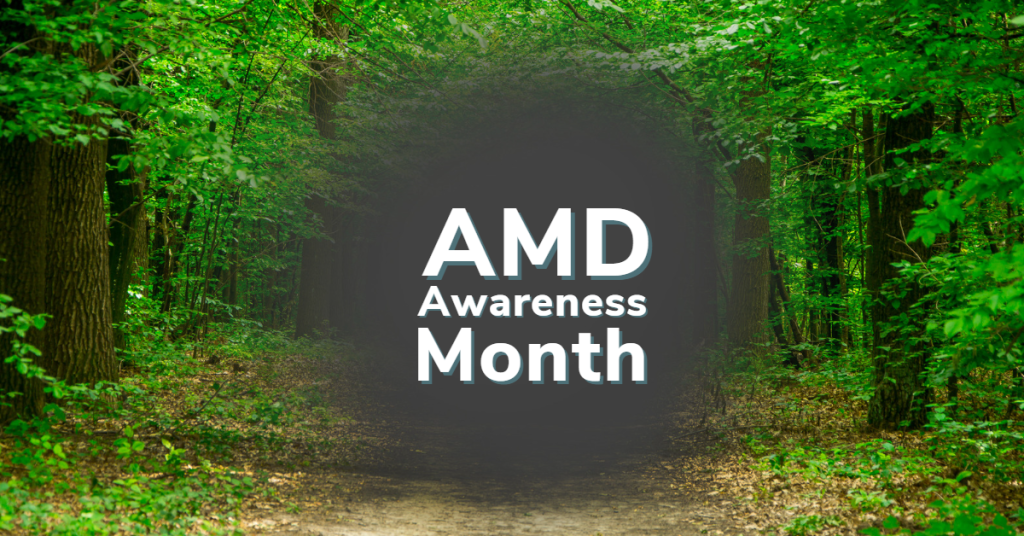Did you know that February is Age-related Macular Degeneration Awareness Month? Well, allow us to tell you more about this disease and what you can do to get the best and earliest treatment for AMD. Read on to learn more!
What is Age-related Macular Degeneration?
Age-related Macular Degeneration affects the back of the eye, the macula, which is the central part of the retina. When the macula becomes damaged from AMD, the center of a person’s vision becomes obscured (e.g., blurred or darkened) leading to a blind spot.
If left un-treated, it is the leading cause of permanent impairment of close-up, detailed vision among people who are 50 years and older. However, as AMD does not usually affect peripheral vision, it typically does not cause total blindness in patients.
What are the types of Age-related Macular Degeneration?
AMD is just one type of disease process that affects the macula, but it is very common. To break it down even further, there are two forms of it: dry and wet.
The dry form is more common and usually progresses slowly in comparison to the wet form. In dry AMD, the appearance of small yellow deposits of waste, called drusen, form under the retina. As the drusen grow, it stops nutrients from reaching retinal cells that process light. When these cells die, vision becomes blurred and worsens over time.
Conversely, wet AMD is less common but progresses much more rapidly. What happens in wet AMD? New, fragile blood vessels, that frequently break and leak, and scar tissue grow under and into the retina. These factors can cause vision loss.
What preventative measures can patients take?
The best preventative measure patients can take is visiting their eye doctor on a regular basis (i.e., annual eye exams). The good news is that with regular check-ups, early diagnosis, and new treatment options available, doctors can maintain visual acuity and improve vision in most patients with AMD.
As a parting message, we would like to remind you that the Black Hills Regional Eye Institute’s Dr. Prema Abraham is a leading physician in retina procedures. Dr. Abraham also participates in numerous clinical research trials related to macular degeneration to help our patients with this disease. You can learn more about Dr. Abraham here.


